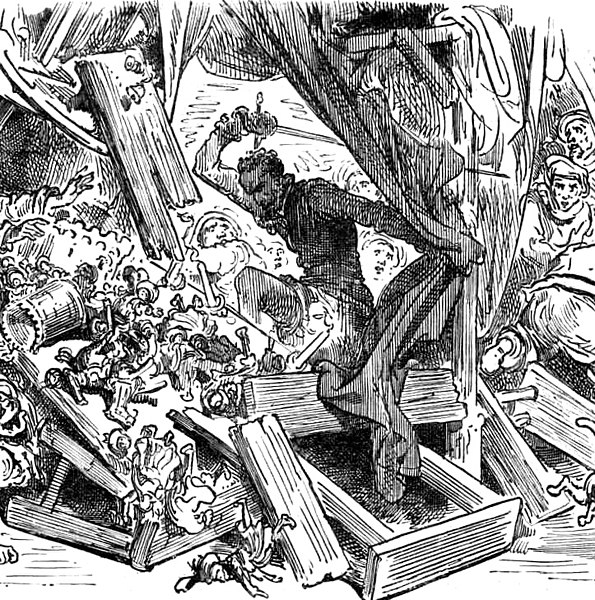El retablo de maese Pedro
El retablo de maese Pedro is a puppet-opera in one act with a prologue and epilogue, composed by Manuel de Falla to a Spanish libretto based on an episode from Don Quixote by Miguel de Cervantes. The libretto is an abbreviation of chapter 26 of the second part of Don Quixote, with some lines added from other parts of the work. Falla composed this opera "in devoted homage to the glory of Miguel de Cervantes" and dedicated it to the Princess de Polignac, who commissioned the work. Because of its brief length by operatic standards, its very challenging part for a boy opera performer, and its use of puppets, it is not part of the standard operatic repertoire.
Don Quixote watching Master Peter's puppet show, an illustration by Gustave Doré from Don Quixote, chapter 26, the scene which inspired the work
In scene 6, Don Quixote, convinced that the puppets are real, destroys the puppet theatre. Illustration by Gustave Doré from Don Quixote, chapter 26
Manuel de Falla y Matheu was a Spanish composer and pianist. Along with Isaac Albéniz, Francisco Tárrega, and Enrique Granados, he was one of Spain's most important musicians of the first half of the 20th century. He has a claim to being Spain's greatest composer of the 20th century, although the number of pieces he composed was relatively modest.
Manuel de Falla (27 October 1919)
Birth house in Cádiz
Building where Falla lived in Madrid from 1901 to 1907
Manuel de Falla (date unknown)






